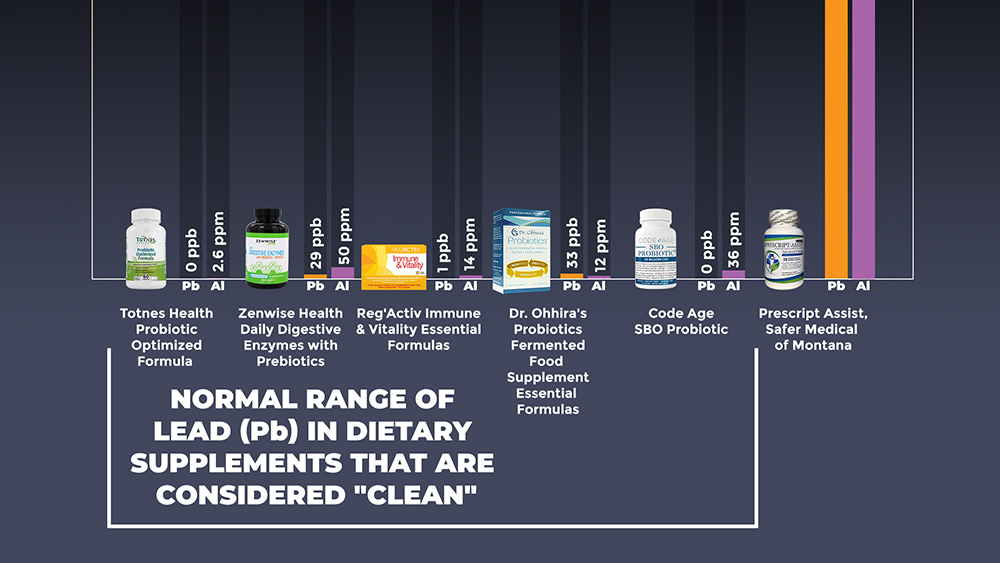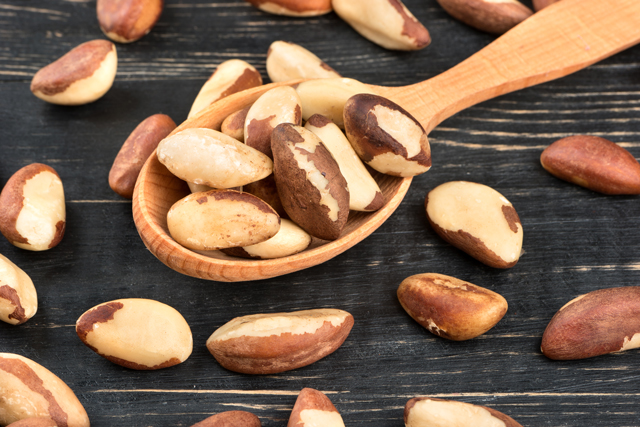Reduce inflammation to improve heart health: Study
08/22/2019 / By Evangelyn Rodriguez

Inflammation is an important part of the immune response. When the body sustains an injury or an infection, it uses inflammation to signal the immune system to send specialized cells that could fight off the invaders and start repairing damaged tissue. While the inflammatory process serves a good purpose, having it on for too long can cause problems. Chronic inflammation has been linked to the development of many diseases, including diabetes, autoimmune disorders, cancer, and cardiovascular disease. Because of the role it plays, inflammation has become one of the primary targets of medical interventions. In a review article published in the Chinese Journal of Integrative Medicine, researchers from the China Academy of Chinese Medical Sciences and Beijing University of Chinese Medicine discussed potential strategies to inhibit inflammation. They believe that combining Chinese medicine and Western medicine can be an effective way of preventing this process and treating associated diseases like cardiovascular disease.
Eastern and Western medicine versus heart disease
For the past few decades, extensive research has established the critical role that inflammation plays in atherosclerosis and the occurrence of acute cardiovascular events. Today, inflammation is considered a potential target for the treatment of coronary artery disease (CAD) and the reduction of residual cardiovascular risk. (Related: Inflammation is the cause of nearly all disease – Here’s how to prevent it.)
The idea of targeting inflammation was first solidified in a large-scale clinical trial known as Canakinumab Anti-inflammatory Thrombosis Outcome Study (CANTOS). In it, researchers focused on inflammation rather than cholesterol. Canakinumab, a human monoclonal antibody that can neutralize interleukin-1 beta — a pro-inflammatory signaling molecule — significantly reduced the rate of recurrence of cardiovascular events in patients who have already suffered from a heart attack, reported the study. This confirmed the role of inflammation in heart disease and the importance of anti-inflammatory treatments.

|
Discover how to prevent and reverse heart disease (and other cardio related events) with this free ebook: Written by popular Natural News writer Vicki Batt, this book includes everything you need to know about preventing heart disease, reversing hypertension, and nurturing your cardiac health without medication. Learn More. |
The researchers also wrote about the rising frequency of use of Chinese medicine, particularly in the anti-inflammatory treatment of CAD. In recent years, Chinese medicine has become known as a promising adjuvant therapy for CAD because of its safety and pleiotropic (multi-target) effects. Some examples of these are:
- Anti-inflammatory
- Anti-platelet
- Lipid-regulating
- Endothelium-protective
- Microcirculation-improving
Taking CANTOS as an example, the researchers believe that combining Chinese medicine with Western medicine may be a sound strategy for combating inflammation. Their paper provides a new perspective on the use of Chinese medicine for the treatment of CAD.
Natural ways to reduce inflammation
Chronic inflammation has many symptoms, although they can be vague in the early days. Sometimes, these symptoms even go undetected for long periods. One of the most common but life-threatening consequences of chronic inflammation is a heart attack. Immune cells that cause inflammation contribute to plaque buildup that clogs the arteries. Fortunately, there are natural ways to reduce inflammation and prevent the health problems associated with it. To stay healthy, follow these simple tips (h/t to Scripps.org):
- Adopt an anti-inflammatory diet — Foods rich in omega-3 fatty acids are great at reducing inflammation. Fiber-rich fruits and vegetables also help; they even promote healthy digestion. To know which foods work best, follow the Mediterranean diet.
- Avoid inflammatory foods — Inflammatory foods are those that contain high amounts of trans fats, carbs, and sugar. Red meat, fried foods, margarine, and foods with refined sugars fall into this category.
- Control your blood sugar — If you follow a healthy, anti-inflammatory diet, then you’ve got this covered. Lean proteins and whole foods high in fiber help regulate blood sugar levels effectively. When in doubt, apply this simple rule: Avoid white foods like white rice, white pasta, and white bread.
- Exercise regularly — The American Heart Association recommends getting at least 150 minutes of moderate-intensity aerobic exercise per week coupled with moderate- to high-intensity muscle-strengthening activity on two days. Having a healthy exercise regimen improves a person’s overall health and well-being.
- Manage your weight — Being overweight and having too much fat can contribute to inflammation. On the other hand, if you follow the preceding tips, you can not only reduce inflammation, you can also lose weight naturally and effectively.
- Manage stress — Chronic stress is another factor that can cause inflammation. To help manage stress throughout the day and prevent inflammation, try natural methods like yoga or meditation.
Inflammation may not be avoidable, but it can be controlled and even reversed by adopting a healthy lifestyle that involves regular exercise, proper stress and weight management, and consumption of anti-inflammatory foods.
Sources include:
Tagged Under: acute cardiovascular events, adjuvant therapy, alternative medicine, anti-inflammatory, anti-inflammatory diet, anti-platelet, atherosclerosis, blood sugar, CAD, cardiovascular risk, Chinese medicine, coronary artery disease, disease treatments, endothelium-protective, exercise, heart disease, heart health, herbal medicine, Herbs, inflammation, lipid-regulating, microcirculation-improving, natural cures, natural medicine, prevention, remedies, research, stress management, TCM, weight management, Western medicine

















